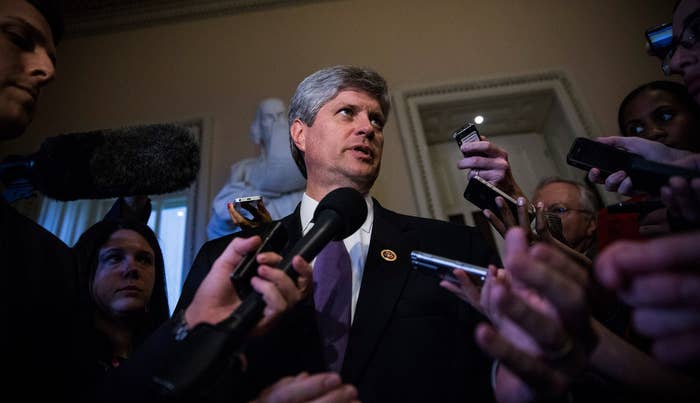
WASHINGTON — The Obamacare contraceptive mandate for employer-based care has ignited conservative activism around the idea of religious freedom over the last few years. But with the Supreme Court expected to rule on the explosive Hobby Lobby case in the next few days, House Republicans say there's no real next step if the Supreme Court rules against Hobby Lobby.
Republicans have been united against it but for years now have been unsure as to how to move forward. Some have wanted to wait until the court decides, and others have said that the House needed to take a more aggressive stance and bring legislation to the floor.
The outcome of the Supreme Court case will depend on a number of variables, including how broadly the justices apply their ruling. But many Republicans say a court ruling is really their last, best hope at overturning the mandate.
"A lot of hope has been invested quite frankly in the court decision," said Rep. Jeff Fortenberry, an original co-sponsor of the bill to undo the mandate. "On specifics, what we do, I don't know. We've tried a number of ways, even on the last budget negotiations with the president to get him to at least have a delay of the HHS mandate until the court rules so it wouldn't put companies like Hobby Lobby in such a difficult ethical dilemma."
Fortenberry and others have tried to push the leadership to bring a bill to the floor, which they so far have not done. A similar Senate bill, introduced by Sen. Roy Blunt, failed as an amendment a few years ago — and Democrats in turn railed against Republicans, charging they wanted to allow bosses to make decisions about birth control for the women they employ. And how narrowly or broadly the court decides the case could have major implications for legal defenses based on the principle of religious freedom.
"We've exhausted legislative options although there were attempts to get delays to this in budgetary agreements," he said. "If they uphold it, I don't know if it comes back as a specific issue or it lends itself to this ongoing debate about Obamacare in general."
But even Rep. Michele Bachmann, who has long argued that the House should vote on the mandate, conceded that if Hobby Lobby loses the case, there's not a lot Congress can do except use the outcome in a pitch to voters in the 2014 and 2016 elections.
"I think it'll be an impetus for the elections in November because people recognize the overreach that the Obama administration made. They're violating people's constitutional rights, their sincerely held religious beliefs and their right to freedom of speech and expression," she said. "So I think we'll see a greater likelihood of the Democrats losing control of the Senate and I think it will be even more difficult in 2016 for the eventual Democratic nominee to be successful. Because the Democrat nominee would have to defend denying religious liberty rights, they would have to defend denying freedom of speech rights. That's a really tough sell with the American people."
Rep. John Fleming, a Republican doctor from Louisiana, said it would not be in the GOP's best interest to try to pass legislation, even if it's just a messaging bill, before the November election.
"We have such a divided Congress but if we get control of the Senate we get a significant ability to shape legislation that the president will have to sign or veto and I believe our leadership will move forward with this," he said. "In the lame duck, it's no more likely to pass then. If we take over the Senate it's a whole new ballgame."
